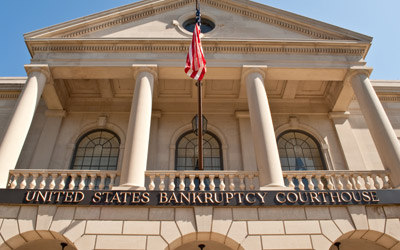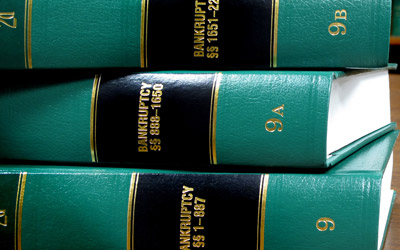FAQ'S
Covered in this Article:
- Can a debtor re-file for a chapter 7 if he needs to do it again? And is there a limit to a person re-filing for bankruptcy?
- When is the best time to file under chapter 7?
- Can I file for bankruptcy protection if I own a business?
- Will filing for bankruptcy make the IRS go after me?
- Do I have to file bankruptcy on all of my credit card accounts or can I keep some?
- What if forgot to include a debt on my schedule? Can I do it later?
1. Can a debtor re-file for a Chapter 7 if he needs to do it again? Is there a limit to a person re-filing for bankruptcy?
Once you receive your discharge in a chapter 7 case, you cannot file another bankruptcy for eight years. This does not mean you cannot file for relief under chapter 13 of the Bankruptcy Code, also known as a “Wage Earner Plan.” You may indeed obtain substantial assistance 3 through a Wage Earner Plan under Chapter 13.
2. When is the best time to file under chapter 7?
The answer depends on the status of the debtor’s dischargeable debts and the nature of his nonexempt assets. The ‘watchword” is pre-petition planning. The attorney can advise you, only after a full review of your individual situation. However, some general rules the debtor should follow are:
* It is not wise for a debtor to file under chapter 7 if he anticipates incurring substantial additional debts in the near future, because it will be another six years before the debtor is again eligible for a chapter 7 discharge. For example, even if a debtor has incurred huge medical expenses, he should not file under chapter 7 until the illness or injury has either been cured or covered by insurance, as it will do little good to discharge, say, $10,000 of medical expenses now and then incur another $10,000 worth in the next few months.
* If a debtor is due to receive an income tax refund or other asset that is not exempt, the debtor should not file under chapter 7 until after the refund or asset has been received and disposed. If the debtor files under chapter 7 before the refund or asset has been received and disposed of, he will lose the nonexempt portion of the refund or asset because it will later have to be turned over to the trustee in the chapter 7 case.
* All non-exempt property or money acquired by a debtor through inheritance, life insurance, or a divorce within 180 days after the filing of a chapter 7 case becomes the property of the trustee in the chapter 7 case. Therefore, if a debtor anticipates acquiring any money or property through any of these means within the next 180 days, he should not file under chapter 7 without due consideration of available alternatives.
4. Can I file for bankruptcy protection if I own a business?
Yes, but it depends on how the business is owned, the value of your business, and other factors including what you intend to do with the business. The business itself may require bankruptcy protection; if you are a sole proprietor, or have guaranteed your business’ debts, you may require bankruptcy protection for yourself, as well.
5. Will filing for bankruptcy make the IRS go after me?
I am preparing to file for chapter 7 bankruptcy and have been advised that the IRS will look at this as a huge red flag. Will filing for bankruptcy make the IRS audit me, and review my finances?
I am not aware of any policies — written or unwritten — targeting bankrupts for audits or other IRS problems. Please keep in mind that approximately 1.5 million people file for bankruptcy each year. The IRS would quickly run out of man-power if it targeted or specially screened the tax returns of former bankrupts. In summary, the IRS will not audit a taxpayer simply because they file for bankruptcy.
6. Do I have to file bankruptcy on all of my credit card accounts or can I keep some?
You must include all of your credit card debts that you owe in your case. You may choose to keep some credit card accounts by “reaffirming” the specific debt. However, I never advise any clients to reaffirm any credit card account. After the bankruptcy case is closed, you can repay the debt voluntarily. I would never advise a debtor not to become legally obligated to repay a credit card debt. By signing the reaffirmation agreement, the debtor becomes legally obligated to repay the debt.
7. What if I forgot to include a debt on my schedule? Can I do it later?
After you file the bankruptcy case, and if you discover that an entry is inaccurate or missing, the documents typically may be corrected by filing of an amendment. Remember, you are submitting the petition under the penalty of perjury, so take care with the initial filing.
In my opinion, the most important part of the entire bankruptcy process is to ensure that the petition is as complete as possible. Quite often, the debtors are very unorganized, and they just do not take the time their entire financial picture. A debtor must provide to their lawyer a detailed list of all of their debts, and the creditors address. Ordering a credit report may enable the debtor to determine who they owe monies to. However, all debtors must be warned to not rely on a credit report to assess who you owe monies to.






